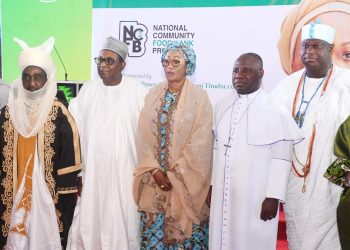To reposition Nigeria’s economy and tackle insecurity at its roots, the National Economic Council (NEC) has approved the establishment of a Cotton, Textile and Garment Development Board, alongside new strategies for agribusiness expansion and livestock transformation projected to generate up to $90 billion in economic value by 2035.
Other initiatives approved by council included the establishment of the Green Imperative Project (GIP) national office in Abuja and regional offices across the six geopolitical zones, as well as addressing the crises fuelled by the current system of animal husbandry in the country.
At its 149th meeting held on Thursday at the Presidential Villa, Abuja, NEC also observed a minute of silence for victims of the recent killings in Benue and Plateau States, while expressing its condolences for the people and governments of the affected states.
NEC, chaired by Vice President Kashim Shettima, with Governors of the 36 states of the federation, the Governor of the Central Bank of Nigeria (CBN), the Minister of Finance, and other co-opted government officials as members, during its meeting at the Aso Rock Villa on Thursday, approved the proposal for the establishment of the Cotton, Textile and Garment Development Board.
As the regulatory body for the cotton, textile and garment sector of Nigeria, the Board will have governors representing the six geo-political zones, with Ministers of Agriculture and Food Security, Budget and Economic Planning, and Industry, Trade and Investment as members.
The board, when set up, will be domiciled in the Presidency, private sector-driven, with representation of the relevant public sector stakeholders, and funded from the Textile Import Levy being collected by the Nigeria Customs Service (NCS).
NEC also approved the establishment of the Green Imperative Project (GIP) national office in Abuja and regional offices across the six geopolitical zones, as well as the request for support for the formal launch of the National Agribusiness Policy Mechanism.
Addressing issues of empowerment and food security, Vice President Shettima implored members of the Council to be courageous in taking decisions, saying they must “resist the temptation of grand rhetoric and embrace the hard work of reform.
“The nation is watching. Our citizens are not waiting for another speech. They are waiting for results. This Council must remain a meeting point of ideas that move the nation forward. Let us rise above partisan interests and regional divisions and focus on what truly matters—building a nation that delivers for all,” he stated.
VP Shettima reminded members that they were not at the council meeting as a mere routine but by “the resolve to confront the pressing realities that define the lives” of the Nigerian people”, even as he urged them not to just respond to crises, but work as architects of a sustainable future for the nation.
He stated: “Governance, in truth, is not the theatre of promises. It is the solemn business of fulfilment. Today, as always, we are not here to admire the beauty of policy design but to ensure the substance of its execution.
“The task before us is monumental, but it is not unfamiliar. At our last meeting, we launched bold initiatives and reawakened our sense of duty to the nation. Today, we return with even greater clarity about what lies ahead. We must always bear in mind that we are not merely responders to crises. We are architects of a sustainable future.”









